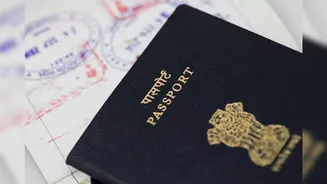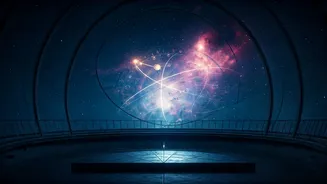Meeting's Abrupt End
The diplomatic calendar was thrown into disarray when former President Donald Trump scrapped his planned meeting with Russian President Vladimir Putin.
The decision, announced publicly, was a jolt, as such high-level meetings are typically the result of extensive preparation. The cancellation's immediacy and the lack of a clear, pre-emptive explanation immediately created a buzz, drawing widespread attention from both international observers and media outlets. The unexpected nature of this event amplified curiosity, pushing many to speculate about the underlying reasons for Trump's sudden change of heart regarding the meeting. This drastic alteration in plans brought up questions about the dynamics between the two nations and raised doubts about the long-term diplomatic course of the region. The sudden shift certainly left the world wondering what exactly had transpired behind the scenes to trigger such a change.
Trump's Reasoning
Trump’s reasoning behind the cancellation of the summit offered a glimpse into his perspective. He stated that it "just didn't feel right" to him, an expression that resonated for its lack of precise detail, leaving many seeking a deeper understanding. This straightforward yet ambiguous declaration fueled conjecture. The vague nature of his statement made analyzing the underlying motives challenging for both political analysts and the public alike. Such a pronouncement, coming from a leader, held considerable weight, suggesting underlying issues might have contributed to the decision. The lack of detailed justification led to numerous interpretations and analyses. This lack of specific reasoning highlighted the complexities and uncertainties within international politics, and raised questions about transparency and openness in diplomatic decisions.
Global Reactions Emerge
The cancellation of the summit, naturally, ignited a global flurry of reactions and responses. The news was met with diverse viewpoints, ranging from surprise and concern to analysis and anticipation. Diplomatic experts, political commentators, and various world leaders weighed in with their analyses and observations. Some saw the decision as a potential setback for international relations, while others viewed it as an opportunity to reassess the dynamics between the two countries. The wide range of responses underlined the multifaceted nature of international politics, where individual decisions can have global consequences. Reactions highlighted varying perspectives on leadership, policy, and the strategic outlook of the key players involved. Media outlets across the globe were abuzz with coverage, underscoring the ripple effects of this significant alteration in the diplomatic landscape.
Impact and Future
The repercussions of this abrupt summit cancellation extended beyond immediate reactions. The implications affected the future course of relations between the United States and Russia. This high-profile cancellation presented a challenge to the existing diplomatic channels and created new uncertainties. International relations are often carefully curated, and a deviation like this could affect planned strategies. In the wake of this development, questions about the potential for future engagement were raised, and the long-term outlook for dialogue and collaboration between the two nations remained uncertain. The situation emphasized the volatile nature of international diplomacy, where a single decision can cause significant ripples. The cancellation served as a reminder of the need for flexibility and adaptability in navigating the complexities of global politics, as the world looked on to see how the story would unfold.















